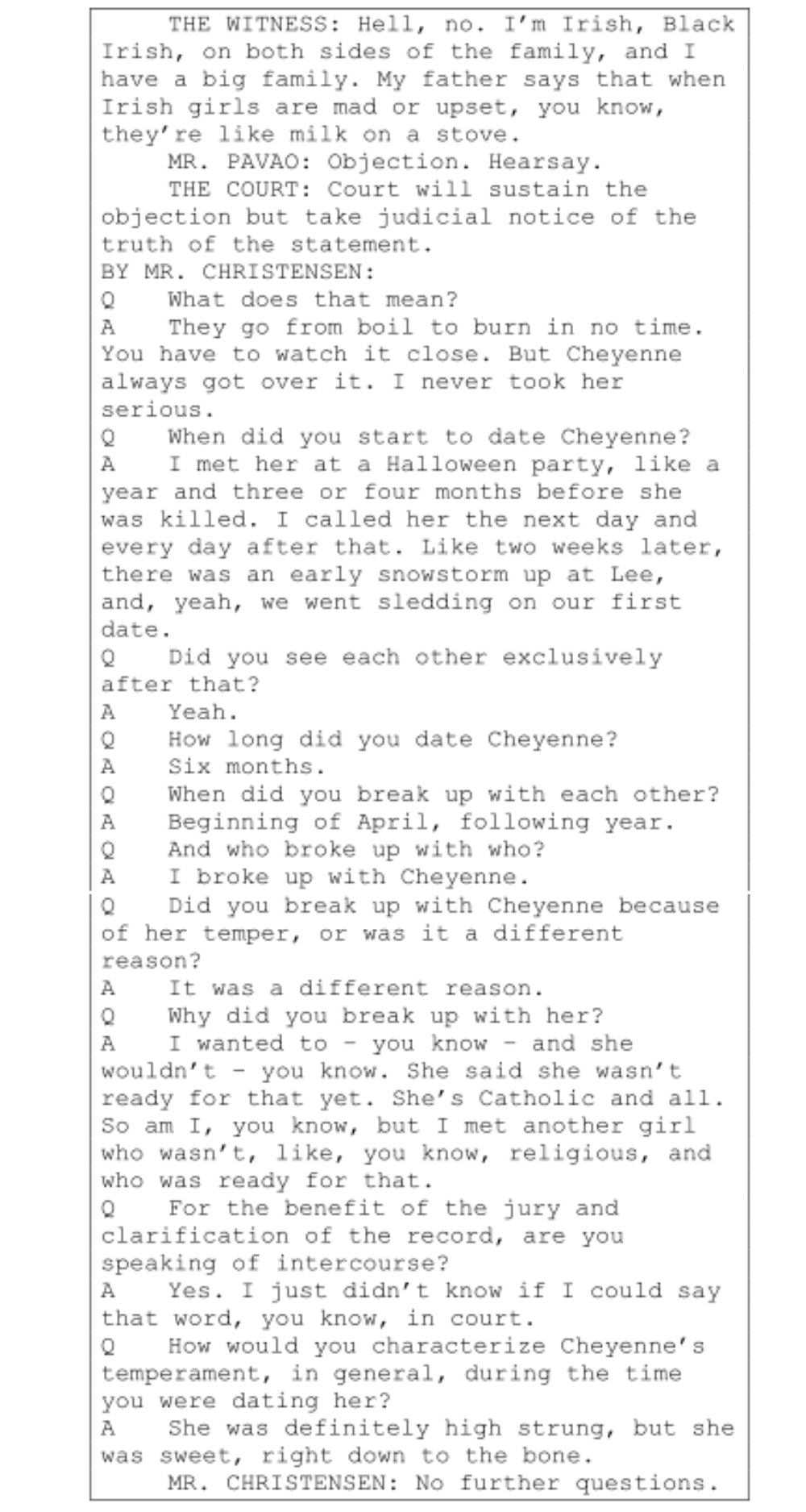Whiskey, Dynamite and Irish Tempers
I eat lunch alone today. I get a hot dog and a giant pickle from the vendor on the courthouse steps. After I eat, I go into chambers for some coffee to pour over a cup of ice and sugar. The Judge’s door is open, and he and Ivan are bullshitting. They invite me to join them, and I am delighted, because Tom Foley tells stories that rival Twain’s, except Foley’s stories, are all true. He equates exaggeration with blaspheme.
Today’s story is set in the South Pacific where Foley served during World War II. Judge Foley – then known as Tommy -- and God knows how many soldiers and sailors were stranded on an island near the Philippines, cut off from supply lines and nearing starvation, this as their reward for killing and/or chasing off the Japanese over a period of time.
One morning my Judge awoke to find his best friend, the watch, missing. They went searching for him and found him staked and flayed by the last hidden vestiges of the enemy.
I think Thor must have truly loved World War II. I imagine his blood rushing as that Great War began, his delight fed by the stench of blood, the screams of agony, and the rotting corpses rising from the earth in perverse sacrifice to his whim.
After my Judge and the rest of the Americans overcame the Japanese, a new struggle began, hunger, then starvation, and sickness. Many succumbed to malaria, and other tropical diseases, nature’s own dirty bombs. Thor, the Bloodthirsty Bastard.
When it seemed that all hope was lost and despair lurked at the doors of the hearts of the stranded men, at last, their prayers were answered, and dozens of crates of emergency rations were dropped from planes down into the bay. Young Tom Foley was one of several men entrusted to collect and crack open the crates. What they found inside was, A, dynamite, and B, Irish whiskey, luckily far more whiskey than dynamite. I will not attempt to mimic his hilarious descriptions.
Ivan and I laugh hard, thinking that was the climax of the story, but he continues. As I said, though the Judge was Army, the Navy was present, as well. There was a young officer who went by the name of Jack, short for John Fitzgerald Kennedy. Jack and Tommy had a lot in common. The two Irishmen got on very well and maintained the friendship born on that island and their antics for many years, even until Dallas.
The Judge tells us how he and Jack Kennedy drank a bottle of whiskey together and hatched a plan. Early the next morning, Jack, Tommy, and others took what nets they had gotten their hands on out into the bay. They jerry-rigged the nets together and then encircled the outer perimeter of the small bay. Then Kennedy and the Judge putted around the bay, dropping dynamite charges into the water.
My Judge’s face lights up while he describes hauling in a ton of fish to starving soldiers. He describes that night, poignantly, the warm sand, the beautiful sunset, the smoky fish, and seaweed washed down with Irish whiskey which filled their bellies and their hearts with new hope.
He speaks of his intense gratitude as he awaited sleep that night, and being so, “Gosh darned grateful that the men giving their lives for this great nation didn’t have to go to sleep hungry again.” He tells us, “I remember looking right into that full moon. It was the biggest moon I’ve ever seen in my life, and I can tell you my eyes weren’t too dry saying my prayers that night,” and his eyes aren’t too dry now telling the story.
He is a tough old guy, the Judge. Not everyone likes him, but everyone who knows him respects him. I feel lucky to work for him and have no regard for anything negative wimpy, thin-skinned lawyers say about Tom Foley’s temper. The Judge’s story being over, I will get back to mine.
Pavao calls his next witness after lunch, Duncan Darling, and, yes, that is his real name. He is a teenage boy with short, black, curly hair and a Mick Jagger mouth. Duncan and Cheyenne dated for six months before they broke up, and she began dating Justin. Pavao makes it sound like Cheyenne jumped from man to man. Duncan confirms her temper. He calls it an Irish temper, like Mr. Connors did.
Duncan looks so uncomfortable testifying. He seems to have cared for Cheyenne very much. Yet, he is forthright when asked specifically about her lousy driving, Irish temper, and foul language.
Some of Pavao’s best spells are in the witness control department. Pavao talks to Duncan, like Fred McMurray used to talk to Chip on My Three Sons. The relevant story Pavao extracts is that when Duncan broke up with Cheyenne, she threatened to kill herself.
Ouch. Double Ouch. Pavao mentioned in opening statement that witnesses would testify to suicide threats. I thought he’d blown his wad early on with the Turke kids. Apparently not.
Jake stands up when it is his turn and walks to Becky’s desk. Becky bends down to one of the evidence boxes and shuffles through paper. Seconds tick by until Becky at last hands Jake a photograph. After showing it to Defense, Jake walks up to the witness stand and hands the 11-by-14 to Duncan. I cannot see it, and I pray to God that Jake didn’t hand Duncan an autopsy blow-up.
He asks Duncan Darling if he can identify the person in the photograph. Duncan smiles.

Jake moves its admission and holds it up. My God. She was beautiful. It is the only photograph we have seen that was taken before her death. It is a close-up. Her head is thrown back in laughter, long silver blond hair in motion. Her eyes are sparkling and as blue as her father’s times a twilight summer sky. Her smile is so infectious that as the jurors pass it one to another, they smile back at her. We wait as the Exhibit slowly makes the round of the jury box.

SILENCE. Everyone is stunned, Christensen included. He looks at the Judge for guidance.

The Judge clears his throat and nods at Christensen. Jake continues his examination. He asks some good questions. It was brilliant of him to show the picture first. Cheyenne looks like a Breck girl, the furthest thing from a deranged suicide. He ends his cross-examination by asking Duncan if Cheyenne, after threatening suicide, attempted the deed. Duncan shakes his head quickly, no. Christensen asks if Duncan ever took the threat seriously.

Nicely handled, Mr. Christensen. Damage control is important. Christensen has skill and weapons, and over time, he will sharpen both, but I am beginning to think, if he wins this one, it will be for his noble heart.
As his witnesses tick by, I am coming to understand that Pavao has brought a sawed-off shotgun as his magic wand. The shotgun approach is not sophisticated or pretty, but its effect is confusion, and it is sometimes effective. All Pavao need do is raise a reasonable doubt. He doesn’t have to prove the squire is innocent.
Christensen, however, has to prove Justin is guilty. He must conjure up a murder in the first degree, and in so doing, he must choose his evidence carefully, lest he lose on appeal. Losing on appeal is like getting a pants-down spanking in front of all your friends. It’s a public and published declaration that you don’t know what you’re doing. It’s expensive to the taxpayer and a personal embarrassment. So, everyone in the DA’s Office is careful, except, of course, Dan Seaton. They informally name prosecutorial misconduct seminars after him, and I hope he takes that in the spirit it is written, but he probably won’t.
